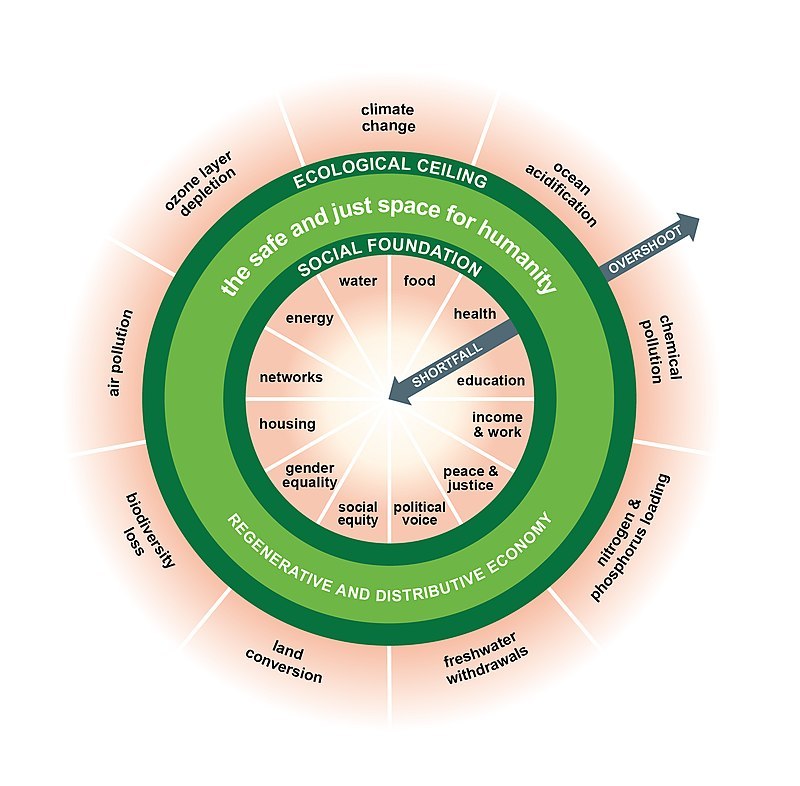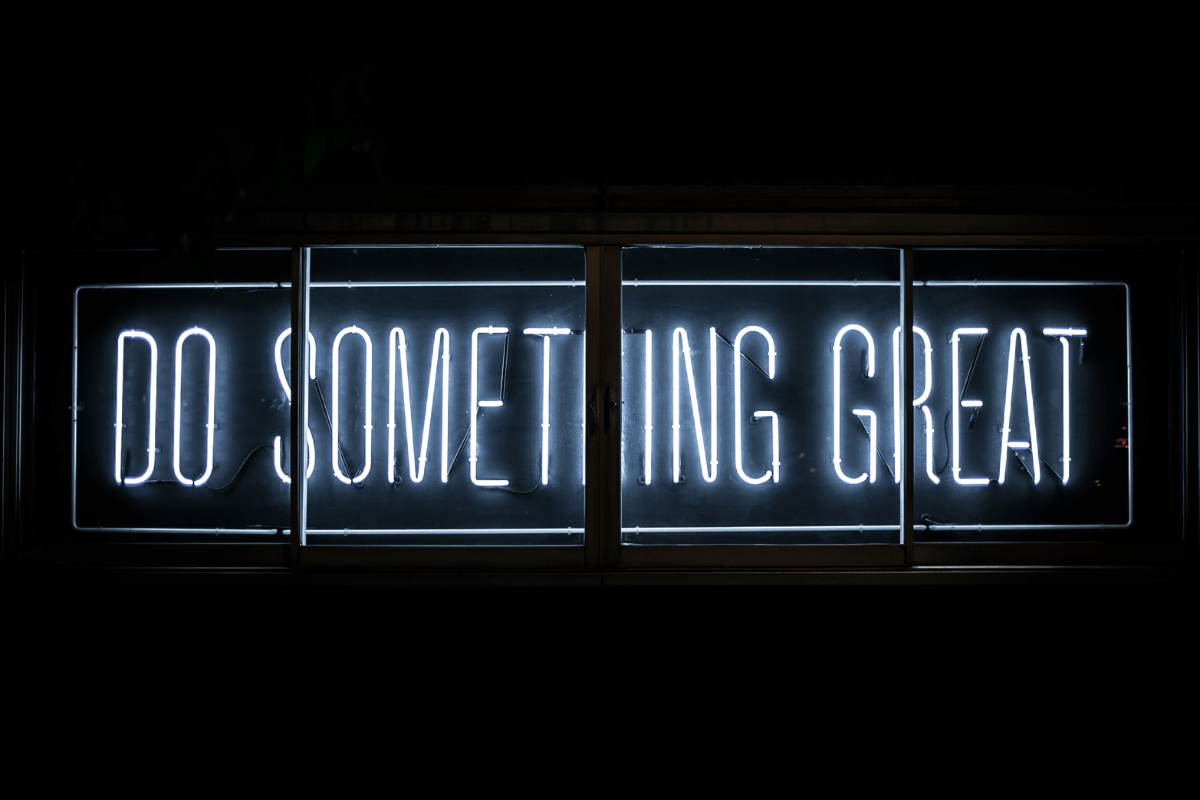It’s December 2020 and we’re in dire need of positivity and hope. With so many global crises unfolding, investigating solutions to both new and old problems should provide a welcome boost.
With their charm, potential for depth, and centuries-old format, books are still the ideal medium for presenting, developing, and discussing solutions – hence this list of titles to keep you up to date on potential future world scenarios.
Though only a sample selection – since books tackling the climate crisis are becoming exponentially popular as a result of the accelerating crisis – it’s a start. In time, we’ll add more titles to our collection.
Most of the solutions discussed in these books are focused on tackling or adapting to the climate crisis. However, since this overarching problem touches on issues including social justice, ecological collapse, faulty political systems, mismanagement of resources, and poor regulation of human-caused environmental destruction, they reach beyond climate.
But theoretical solutions don’t correlate with our speed at implementing them. Many options have been around since scientists first discovered humans’ influence on climate – more than a century ago. Our lack of action, even when solutions are at hand, might be one of our species’ biggest failings.
However, one conclusion common to all these timely and important books is that there are no silver bullets. The enormity of the task before us demands combined local, global, and individual effort; from simply imagining our daily lives in a vibrant, low-carbon world, to creating laws that punish abuse of natural resources, this is a call to arms for everyone. Unfortunately, paradigm shifts don’t come easily.
In no particular order:
From What Is to What If: Unleashing the Power of Imagination to Create the Future We Want
By Rob Hopkins (2019)
The first chapter imagines a future where everyone matters, things turn out okay, and people take stewardship of their environment seriously. Renewables are ubiquitous and affordable; biking, walking, and clean public transport are seen as normal methods for crossing green towns; people have more time to enjoy life and look after their loved ones; food is clean and fresh, with a secure supply; local economies thrive; there’s peace in the world; and the air and the water are clean.
In short, the worst of the climate crisis has been tackled. And it’s hard not to want this future; you keep reading the subsequent chapters only to discover how achievable it would be, if enough people believed in it and became part of this positive vision.
A collection of idealist do-gooders, each chapter poses a question followed by multiple answers grounded in real-world case studies, and the stories already unfolding.
Solutions not only exist – they have also been successfully implemented in various parts of the world: for example, a community taking back their polluted roundabout and turning it into a playground for a weekend, or a dedicated couple re-envisioning education as a force for imagination.
Rob Hopkins himself practises what he preaches, as co-founder of Transition Town Totnes and the global Transition Network. At the heart of From What Is to What If lies the message of how essential the often overlooked power of imagination and storytelling is for transitioning to a sustainable resilient future. And sometimes this can be as simple as knowing how to imagine the future and to tell that story.
The Future We Choose: Surviving the Climate Crisis
By Christiana Figueres & Tom Rivett-Carnac (2020)
It’s been called an “inspiring manifesto” and “a handbook for climate action”, written by “global optimists” who also happen to be two of the principle creators of the Paris Climate Agreement (2015). As such, the book feels like a continuation of those values: a display of how the promise of that “landmark for humanity” can become reality.
Five years after the agreement, we’ve entered “the most consequential decade in human history”. The climate crisis is here, so we need to slow it down and adapt; every generation needs to help safeguard our world and – believe it or not – move it towards a thriving future.
The science suggests that this could be either our final or our finest hour. For practical advice and a portion of optimism from those dealing with policy at an international level, dig into this book.

What We’re Fighting for Now Is Each Other: Dispatches from the Front Lines of Climate Justice
By Wen Stephenson (2016)
By getting in touch with frontline grassroots activists and campaigners across the US – old and young – independent journalist and climate activist Wen Stephenson has chronicled the transformative social movements where climate activism meets human rights.
Impassioned, inspiring, powerful, and deeply moving, these dispatches create a portrait of the generations of activists who saw peaceful protest as a last resort for fighting the indifference of the powerful, the trashing of the environment, and injustice towards certain social groups. This is a great read for understanding direct action and its timeless importance, as well as the climate justice movement – the overlapping fight for environmental and social justice – and those practicing it in the knowledge that our species is running out of time, highlighting the moral values and the spiritual awakenings that pushed them into action in spite of danger and discomfort.
“Wen Stephenson has written nothing less than a love letter to the student organizers, preachers, and frontline fighters struggling for climate justice across the United States. Together, these portraits coalesce into an impassioned call to action, offering a deep well of wisdom for any person coming to terms with the climate crisis.” – Naomi Klein
Client Earth
By James Thornton and Martin Goodman (2017)
As important as direct action and transformative communities are, it’s certainly beneficial to have the law on your side too. This book charts the journey of non-profit environmental law group ClientEarth over 10 years. Co-written with Martin Goodman by the organisation’s founder and CEO, James Thornton, it is “an unusual and much-needed inside view of the development of environmental enforcement litigation, and its broader implications” (Nature).
The book guides those skilled in law who are willing to facilitate big changes by making the most of existing legal structures, just like ClientEarth did – from court victories against the UK government over pollution, to helping protect the ancient Białowieża Forest in Poland. Not just for lawyers, this book would come in handy for anyone involved in fighting for environmental justice within various avenues, or those set on starting a local campaign, or just in need of inspiration and hope.
“Once something becomes law, it becomes actionable and enforceable. Shortly afterwards, it becomes common sense. It becomes possible for a small group of people like ClientEarth to use existing legal structures to trigger big changes. The task is pretty daunting, but the rewards are huge.” – Brian Eno

Eradicating Ecocide – second edition
By Polly Higgins (2015)
Historically, the destruction of the natural world has too often been seen as progress. Polly Higgins was a lawyer who fought for the introduction of an international ecocide law to hold to account perpetrators of severe, long-term damage to the environment. Since we know who and how powerful these perpetrators are, it comes as no surprise that this fight has been going on for far too long. The book provides a comprehensive legal overview of the past two centuries, explains the crime of ecocide, how it will apply and who can stop it from happening. A must-read for those who want to add their expertise to this important fight on the legal front.
Needless to say, bringing this dream to life would be a massive victory for every being on the planet. The late Polly Higgins wrote a series of books on the topic, and anyone can join the ongoing campaign here.
“The rules of our world are laws, and they can be changed. Laws can restrict or they can enable. What matters is what they serve. Many of the laws in our world serve property – they are based on ownership. But imagine a law that has a higher moral authority… a law that puts people and planet first. Imagine a law that starts from first do no harm, that stops this dangerous game and takes us to a place of safety.” – Polly Higgins
Less Is More: How Degrowth Will Save the World
By Jason Hickel (2020)
The primary cause for climate breakdown and ecological collapse is an economic system that demands perpetual expansion on a finite plane.
Reducing our consumption is a viable, fast solution to climate breakdown and ecological collapse – and the interdisciplinary concept of degrowth isn’t a fantasy. It’s been embraced by many economists and social scientists, and gains traction every day.
Jason Hickel is one of the academics most dedicated to this concept, and Less Is More is only his latest in a series of articles and books explaining and backing degrowth with solid evidence. It answers knotty questions like “What about jobs? What about health? What about progress?”, and offers a vision for a post-capitalist economy “that will not only lift us out of our current crisis, but also restore our sense of connection to a world that’s brimming with life. By taking less, we can become more.”
“Jason Hickel shows that recovering the commons and decolonizing nature, cultures, and humanity are necessary conditions for hope of a common future in our common home. By extracting less we leave more for other species, other people and future generations, thus creating well-being for all. In an ecologically interconnected world, less is more.” – Vandana Shiva
Doughnut Economics: Seven Ways to Think like a 21st-Century Economist
By Kate Raworth (2017)
When looking at the relatively short history of economics, you understand why some economists started thinking outside the box, focusing on the wider context in which their field functions. That’s what economist Kate Raworth did: by identifying the critical ways in which mainstream economics has led us astray, she offered a new, revolutionary economic model to meet the needs of all people – and within the means of the living planet.

A great believer in the power of images, she uses the shape of the doughnut to explain how this new system would function: “between its social foundations of human well-being and [the] ecological ceiling of planetary pressure lies the safe and just space for humanity”.
You may also want to join the Doughnut Economics Action Lab for tools, stories, and transformative action. With Amsterdan already rolling out this new economic system to move out of the mess left by the pandemic, we’ll soon see this put into practice first hand.
Falter: Has the Human Game Begun to Play Itself Out?
By Bill McKibben (2019)
Contrary to expectations, Bill McKibben is not only referring to the environment; his focus is on “the human game”, as in life as we know it. But the changing climate – shrinking and altering the space in which our civilisation can exist – looms over the whole book through a focus on the ideological forces driving it. It’s the climate he returns to after chapters dedicated to germline technology and AI – techno-utopian promises which in fact threaten “the variety of human experience”.
Never before have we had to choose between keeping our species in the human game or letting it become a different game altogether. Where will this process lead if we take the wrong path? Are we at a crossroads? According to McKibben, yes, we are.
It isn’t the first time the author has offered warnings: his 1989 book The End of Nature was one of the first to discuss climate change for a wide audience. By drawing on his experience in building 350.org – a global citizens’ movement to combat climate change – McKibben has solutions to keeping our game going, but to do so we need to confront the potential bleakness of the future. Falter acts as a ‘call to arms’ to preserve the humanity left in our civilisation.

Out of the Wreckage: A New Politics for an Age of Crisis
By George Monbiot (2017)
Published in 2017, Out of the Wreckage goes into politics and ideologies significantly more than the other books listed here, but just enough to keep the conversation going about solid alternatives to current inconsistent governing models.
Being Monbiot and being 2017, the climate crisis is present and seen as a catalyst for radically rethinking democracy and economic life. In his vision, community and more power to the people are essential, and he explains why this will work, how these visions have already been successfully explored, how communities can be rebuilt with the help of a new “politics of belonging”.
Humans have fundamentally changed their lives before, and with a new movement changing as it learns, there is hope to be found in this process.
“Monbiot, with the clarity and straightforwardness that is his trademark, has managed to lay out our dilemma and our possibilities – this book strikes the necessary balance between visionary and practical, and does it with real grace” – Bill McKibben
Novacene: The Coming Age of Hyperintelligence
By James Lovelock (2019)

The father of the Gaia theory published this “controversial and provocative” book when he turned 100 years old. If you want to see how he envisions the future for us and the planet, and highly evolved AI, you’re in for a ride. But this is not some eccentric sci-fi writer; Lovelock is one of the most brilliant inventors and scientists of the last century and has been right on more than one occasion (his electron capture detector made CFCs and other atmospheric nano-pollutants perceptible).
The vision in Novacene (“the new age”) is of humans and artificial intelligence co-operating to help the Earth survive. Fifteen years ago, Lovelock even predicted 2020’s series of disasters, through logical thinking. This is wisdom and know-how we should take into account.
“There is reasonable cause for alarm about what a godlike AI, if such can be created, might do if it escapes the “box” and assumes control of energy grids, transport and weapons. […] But for Lovelock, the Gaia hypothesis will save us, because the machines will realise that they need organic life to keep the planet at a habitable temperature. (Even electronic life could not survive on an Earth that veered into runaway global warming.) So, Lovelock argues, it will suit the robots to keep humans around.” – Steven Poole
Many other titles deserve a place on this list, and it keeps growing – a welcome sign of interest in this most existential of crises. We’ll keep adding suggestions, and hope you’ll join the conversation by sharing your own favourites in the field.
👉 And don’t forget to buy your books on ethical online platforms or independent bookshops in your neighbourhood!
Featured image by Tom Hermans on Unsplash



Leave a Reply